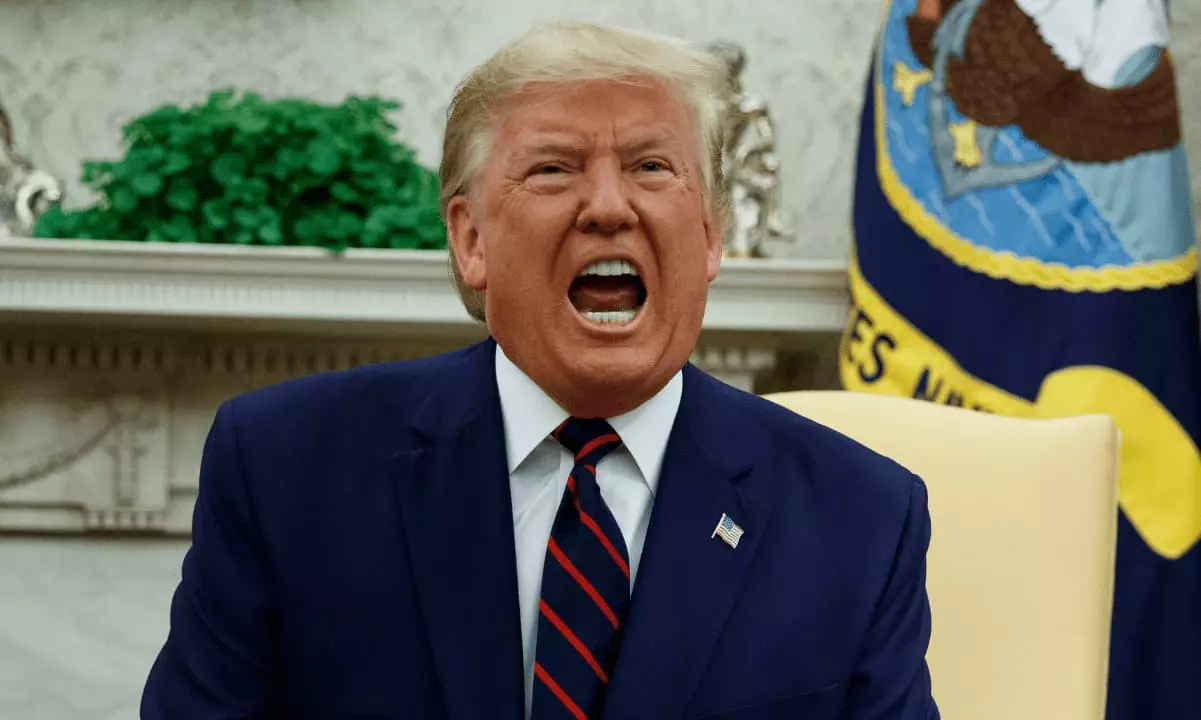In a surprise twist for the political world, the promotion of a “Crypto Strategic Reserve” by former President Donald Trump unraveled into a significant debacle. This event, which occurred in early March, has sparked fierce debate among political insiders and laymen alike. It all began innocently—at least from Trump’s perspective—until the fallout revealed a tangled web of lobbyist influence and miscalculated associations. Brian Ballard, a well-known lobbyist, found himself in overheating waters after his ties to Ripple, a company mentioned by Trump in the social media post, surfaced. What was intended as a bold stride to bolster the cryptocurrency realm devolved rapidly into a PR nightmare, showcasing how the most carefully crafted strategies can fall apart due to the sneezing of a single, explosive detail.
The Ripple Effect: More Than Just Currency
What many fail to see in this spectacle is not merely the blunder of a moment but the implications of a lobbying game gone awry. The mere mention of Ripple, a company with which Ballard has close connections, unintentionally molded Trump as a candidate for accusations of favoritism and manipulation. In a political landscape already teetering on the edge of trust, such missteps feed into skepticism about the motives of those who surround Trump. Ballard, who seemingly acted in good faith, instead ignited speculation that he was trying to leverage his association for personal gain. “Are lobbyists becoming puppeteers with our leaders simply playing the roles?” one might ask as relationships self-destruct, leaving both clients and politicians alike fractured in the aftermath.
Deciphering Trump’s Frustration
Trump’s frustration was acute when he learned about the fallout. “He is not welcome in anything anymore,” he was quoted as saying regarding Ballard. This statement highlights Trump’s sensitivity to perceived betrayal, especially when intertwined with financial interests that might compromise his administration’s integrity. In his circle, the whispers are growing louder: lobbyists risk becoming more of a liability than an asset. The same folks whisper that the space Ballard occupies is one that could jeopardize connections that once seemed impervious to scrutiny. An alliance based on financial gain for one party at the expense of another leads to an inevitable fracture, showcasing the double-edged sword that is modern lobbying.
Increased Isolation: A Silencing Strategy
What followed Trump’s tirade was a palpable distancing from Ballard, a calculated yet emotional maneuver designed to thwart further turbulence. The White House staff reportedly began to redirect their priorities away from having any dealings with the controversial lobbyist, a strategic decision that signifies more than mere displeasure—it exposes the delicate balance that lobbyists must maintain within political circles. Unbeknownst to Ballard, he had unwittingly drawn attention to himself and potentially placed his future endeavors in jeopardy. As Trump’s reign in the political arena continues, the isolation endured by Ballard serves as a cautionary tale; mistakes in representation can lead to significant fallout that could freeze effective channels for influence.
The Financial Gains Amidst Turmoil
Despite the chaos surrounding Ballard’s misstep, it is remarkable to note the contrasting reality of his firm’s financial success. An impressive $14 million earnings in the first quarter of 2025 signifies that not all is lost for the lobbyist. Nevertheless, this financial boon comes at a cost—public trust. The consequences of his entanglement with Ripple cast shadows over the integrity of those firms doing business under the Trump banner. Even as Ballard insists he has not misrepresented himself, the fear that clients seek alternative avenues for influence is a stark reminder of how quickly power can erode when trust diminishes.
The Lobbying Dilemma: Ethical or Expedient?
As we dissect the incident, a broader question emerges: Are lobbyists to be seen as the architects of progress or the harbingers of division? To claim that Trump’s impulsivity is the sole source of Ballard’s woes would be an oversimplification; rather, it is the very nature of lobbying that begs scrutiny. The line between advocating for interests and covert manipulation is often blurred, and as seen here, any misstep in that delicate dance can unravel relationships that took years to construct. As the political landscape evolves, will those who wish to leverage their influence learn from Ballard’s misfortune, or will we see an ever-widening chasm between political leaders and the very entities seeking to sway them?

